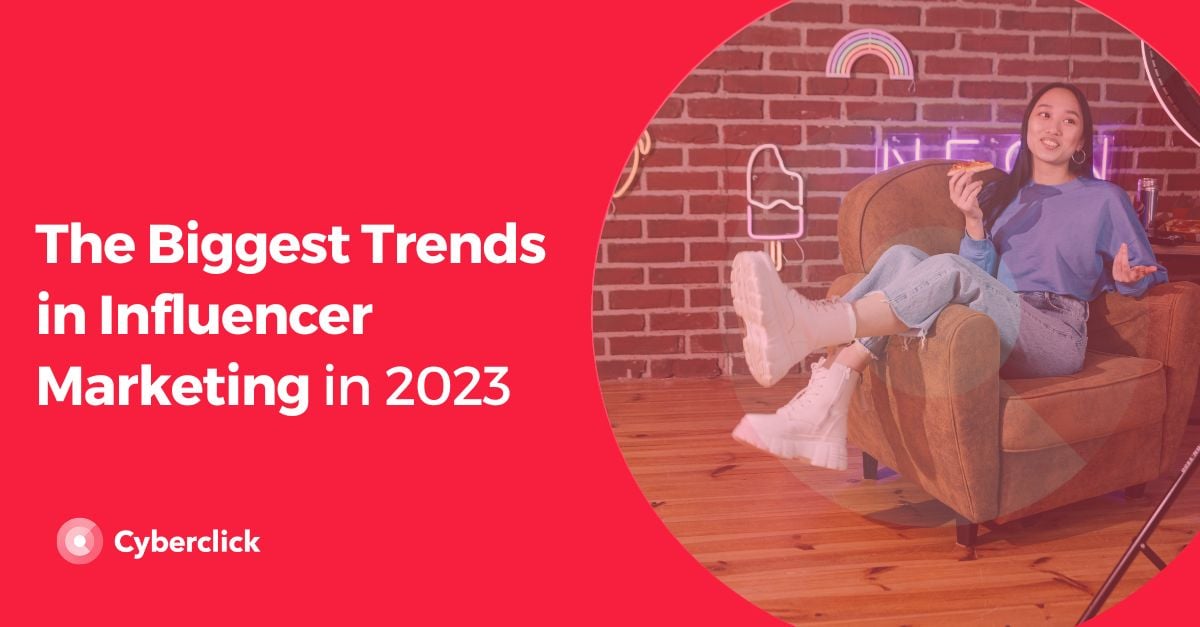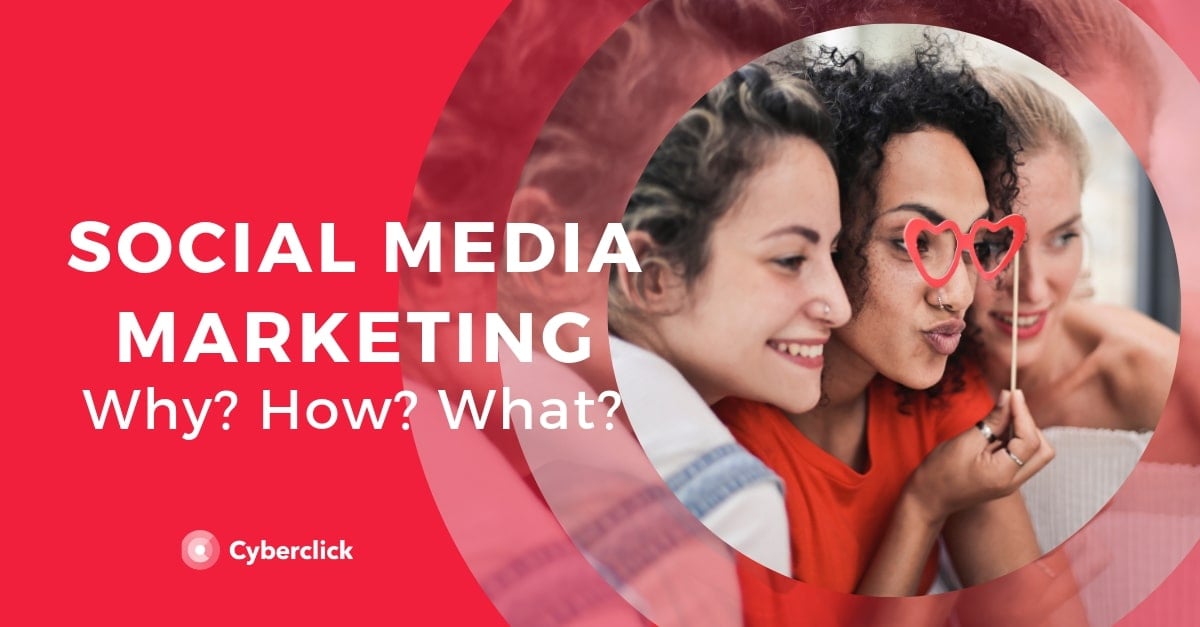As we step into 2024, the marketing landscape continues to evolve at a rapid pace, shaped by technological advancements and changing consumer behaviors. This year, marketers are expected to navigate through a mix of emerging trends that promise to redefine engagement and effectiveness in digital advertising. From the rise of AI-driven marketing, tiktokization of businesses, the domination of video marketing to the importance of privacy-centric marketing, understanding these trends is crucial for brands aiming to stay ahead of the curve. Let's dive into the top marketing trends for 2024 that every marketer needs to know.
Top Digital Marketing Trends for 2024
People-Led Marketing: the New Evolution of Marketing
In the current digital landscape, consumers demand products and brands they can identify with, giving companies the task of finding new ways to connect with them. People-Led Marketing emerges to forge a new bridge of communication between brands and consumers, where people are at the center. The key to PLM is based on these four pillars:
- Content generated by the brand and its users.
- Data collected from users, helping to better understand their behavior and patterns.
- Technological assets that enable the implementation of automations and scaling of actions.
- New online channels for promoting this content.
Under these four pillars, the People-Led Marketing methodology activates and feeds a flow of actions that enable the improvement of almost all of your business KPIs.
Increase in AI Driven Marketing
If 2023 was the year AI-driven marketing emerged, thanks to tools like ChatGPT, 2024 will be the year when companies start to use AI massively and fully integrate it into their digital marketing strategies. It will be unusual (and not advisable) to see a marketing agency or team in 2024 that does not rely on Artificial Intelligence tools. In fact, 60% of global companies will adopt Artificial Intelligence (AI) and Machine Learning in their operations, according to Gartner's predictions for 2024.
Data analysis, targeted advertising, personalized customer experiences, customer segmentation, automation of repetitive tasks, design, and searching for inspiration and useful information – all these tasks and many more will be supported by Artificial Intelligence tools.
TikTokization of Businesses
This trend highlights TikTok's growing influence, which should not surprise anyone given its current strength. Numerous brands, both B2B and B2C, have already joined and started creating strategies on TikTok. However, 2024 is expected to be the year when having a TikTok strategy, both organically and through its advertising solutions, becomes essential.
TikTok's content has diversified greatly, and is increasingly diverting traffic from formats and verticals traditionally associated to Google and SEO strategies. This includes explanatory content, fashion and beauty aspirations, product recommendations, travel and tourism tips, financial advice, etc.
Moreover, TikTok has become the favorite platform for younger generations to gather information and guide their purchases, surpassing other search engines like Google or YouTube. Therefore, it's crucial for brands, whether targeting end consumers or other professionals, to establish a presence on TikTok.
Social Media SEO: Social Networks Are the New Search Engine
Whether social networks will replace traditional search engines remains uncertain, but what's clear is the surge in searches on these platforms. In 2024, we anticipate a transition as social networks evolve into quasi search engines. Notably, almost half of young individuals prefer Instagram and TikTok over Google for product and brand searches, contributing to a 14% decline in traditional search engine queries since 2018.
This trend will inevitably shift the focus of SEO (positioning) towards social networks, requiring a more intensive approach and a different perspective. Brands will now aim to secure top positions in user queries on these platforms.
TikTok is already getting the ball rolling and has introduced Search Ads Toggle, a new feature that allows brands to display their ads in search results on the platform.
Digital Messaging: Email Marketing as the Most Persuasive Form of Digital Communication
Did you think that email marketing was becoming obsolete? Much to the contrary. In 2024, it will continue to be an effective way to attract and persuade consumers, along with chat and mobile notifications. In fact, the volume of emails between businesses and consumers is expected to reach 361 billion in 2024, an increase of 55 billion since 2020.
This strategy is powerful because it allows brands to interact directly and more personally with users.
This trend emphasizes the importance of collecting information on the customer journey, as this can yield valuable data for creating more relevant messages.
The Top 3 Channels for Best ROI: SEO, Content Marketing, and Google Ads (SEM)
Return on Investment (ROI) is a crucial metric to evaluate a company's earnings relative to its investment costs.
Data suggests that for 2024, the top three channels promising the best ROI are SEO (Search Engine Optimization), content marketing, and Google Ads.
Therefore, incorporating these three actions into your marketing strategy for the upcoming year is highly recommended for optimal returns.
Privacy-Centric Marketing
Privacy-Centric Marketing focuses on prioritizing user privacy, emphasizing transparent data collection, secure data handling, and consumer consent. This approach, as well as guaranteeing compliance with regulations, aims to build trust among users, a significant challenge for brands primarily operating digitally.
In 2024, this will become one of the most interesting trends, as 83% of consumers desire more control over their personal data.
With the looming "cookieless future," the era of third-party cookies and individual user tracking for targeted advertising is nearing its end.
It appears that Google Chrome plans to phase out these cookies gradually in 2024, although delays are possible. Brands will need to shift towards using first-party cookies, which are deemed more secure.
Dominance of Video Marketing and Video Ads
Video marketing is becoming increasingly powerful as audiences are highly receptive to audiovisual content.
In 2024, this trend is expected to grow, with more marketing specialists using video for showcasing products and services and establishing deeper, lasting connections with the audience. The digital video market has grown from 18.7% in 2020 to 22.5% in 2022, and it's projected to continue rising.
Google notes that campaigns with vertical videos achieve 10-20% higher conversion rates.
Additionally, live streaming will also be trending, allowing real-time audience interaction with brands.
Growth of Performance-Based Influencer Collaborations
Brands are increasingly focusing on results and benefits, leading to a rise in performance-based collaborations with influencers.
These collaborations depend on the influencer's ability to meet specific goals, such as achieving a minimum number of clicks or sales.
Contracts will increasingly hinge on performance, and exclusivity may be demanded to avoid promoting competitor products. This trend, already emerging, is expected to grow as more brands require concrete commitments from influencers.
Focus on Niche Content and Channels
Brands are finding more success in campaigns targeting specific audiences due to information overload and market saturation. This trend is transversal and affects various channels and formats.
In the OTT world, niche platforms like Mubi (classic cinema), Crunchyroll (anime), and Yaddoo (documentaries) are outperforming broader platforms like Netflix or HBO. Their success is encouraging more companies to launch their own OTT services containing very niche content, which require less investment.
Similarly, niche podcasts are thriving as listeners seek specific content of their interest. Though these have a smaller audience, said audience tends to be of more value, and they search for leaders and expertise in specific areas.
As for influencers, niche influencer marketing strategies also focus on specific market segments, using specialized influencers for greater impact and loyalty. Although the content reaches a lower amount of people, they tend to be more committed and loyal, proving more effective in the long run.
Allbound Strategies
"Allbound Strategy" is a key trend in digital marketing and sales for 2024.
It's a sales and marketing methodology that combines both inbound and outbound approaches for better customer acquisition and sales enhancement. This strategy involves interactive communication between the company and potential clients, offering valuable content and addressing queries to foster brand trust.
To fully grasp Allbound, it's crucial to understand both inbound and outbound marketing and sales. Contrary to the belief that they are mutually exclusive, they can coexist within the same company, often yielding superior results when combined.
Responsable de la estrategia de contenidos y visibilidad en Cyberclick, con enfoque Allbound y especialización en posicionamiento SEO, GEO y automatización con IA. Gestión avanzada del CRM con HubSpot: base de datos, workflows, lead nurturing, scoring y reporting. Experiencia en marketing digital, comunicación corporativa y periodismo, uniendo estrategia, creatividad y tecnología para captar y convertir leads cualificados.
Responsible for content and brand visibility strategy at Cyberclick, with an Allbound approach and specialization in SEO, GEO (Generative Engine Optimization), and AI-powered automation. Advanced HubSpot CRM management: database segmentation, workflows, lead nurturing, scoring, and reporting. Background in digital marketing, corporate communications, and journalism—combining strategy, creativity, and technology to attract and convert qualified leads.






Leave your comment and join the conversation